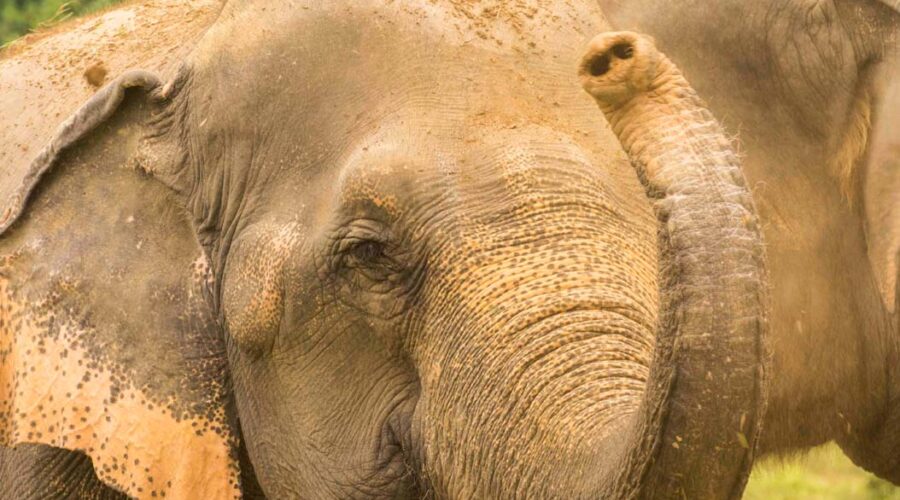Elephant Hills: where to have a family-friendly ethical elephant encounter
Not far from Phuket, Elephant Hills provides families with a truly immersive Thai experience. An ethical elephant encounter and a rainforest glamping experience. The Elephant Hills adventure – or safari – starts with an early pickup from your Phuket hotel and a 2.5-hour journey to your first camp, an elephant sanctuary in the Khao Sok National Park.
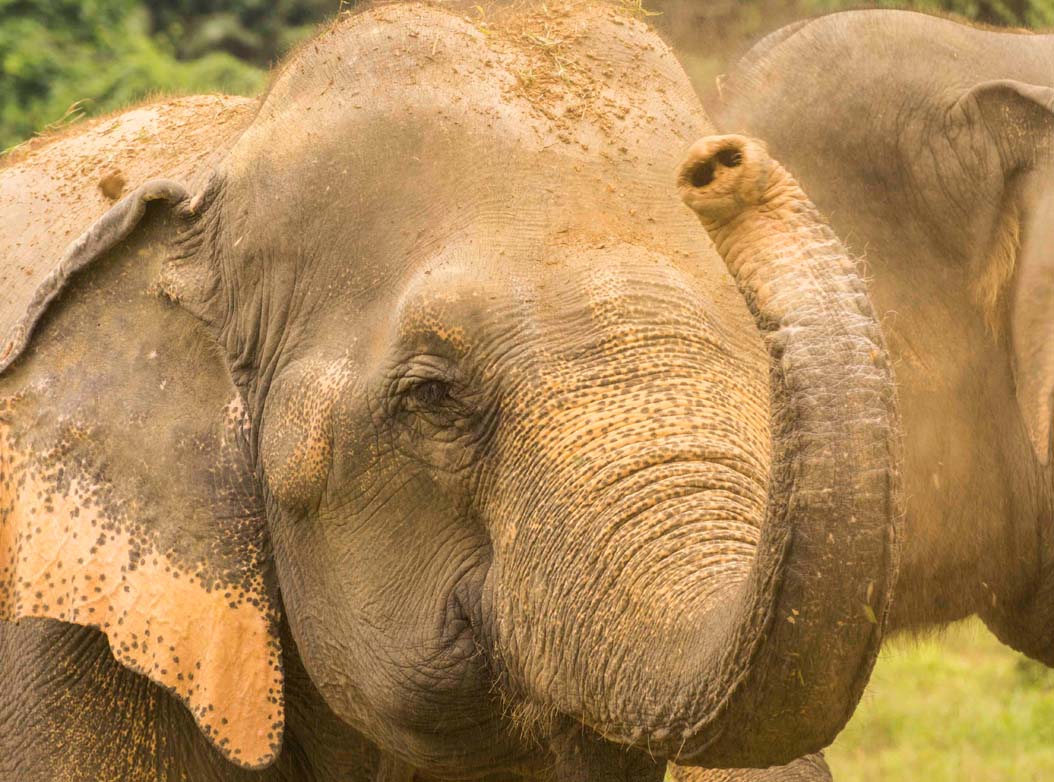
Surrounded by tall limestone karst mountains, the view from the restaurant across dense rainforest to the Sok River is pretty spectacular. The Sok River provides the first adventure as you head downriver to the elephant sanctuary in canoes.
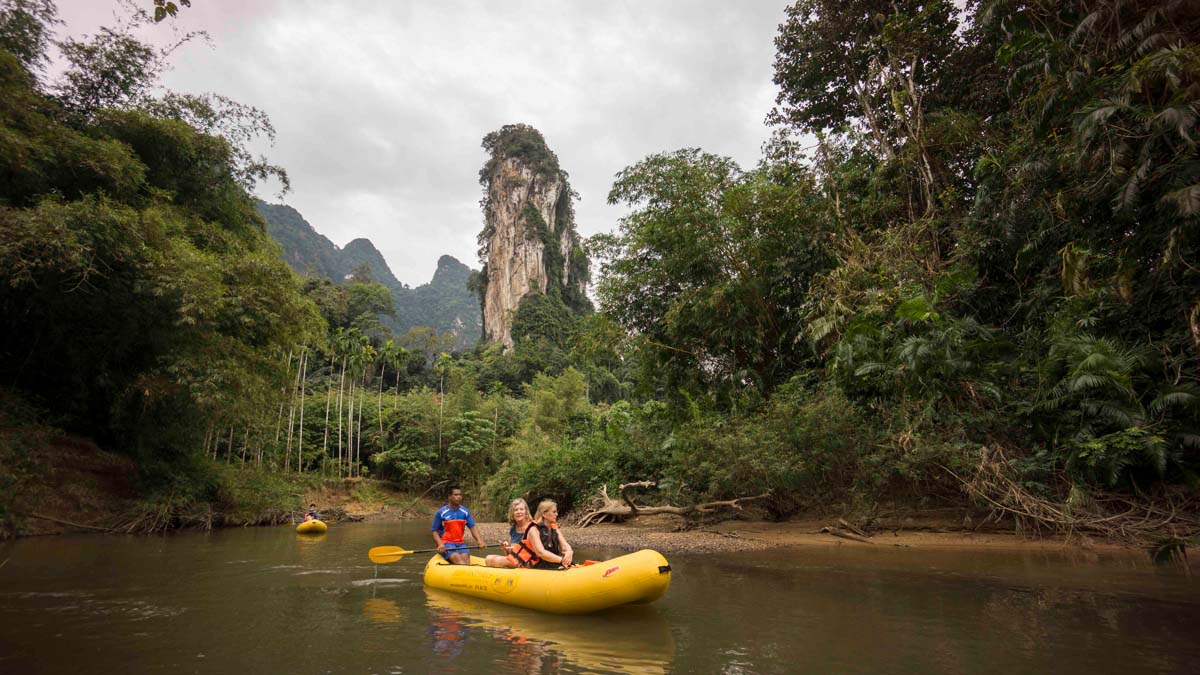
After a peaceful hour rafting downstream you get to meet the elephants. Elephant Hills’ 14 resident elephants previously had a hard life working in the logging industry or giving tourists rides. Each has a mahout (male carer) and friends among the group, and tourist visits help pay for their retirement.
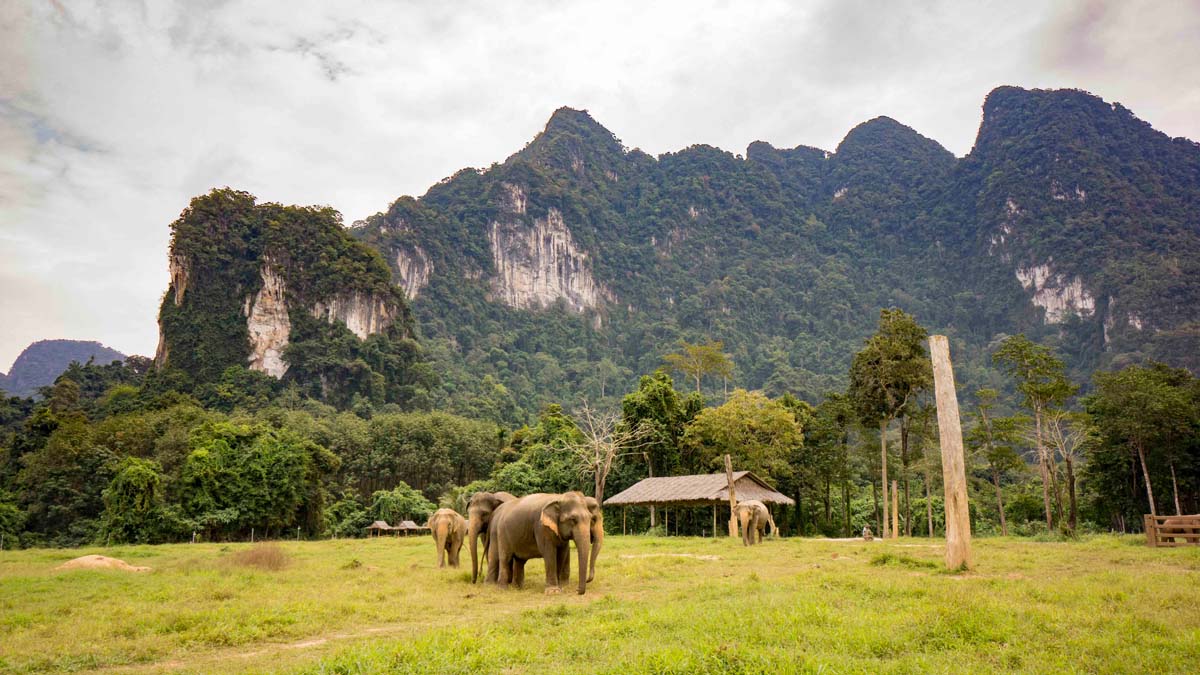
Upon meeting the elephants you’ll be given a comprehensive lesson on everything from their behaviour in the wild, their use in the now defunct logging industry and what has eventually brought these beasts here, to a sanctuary in the far south of Thailand, a long way from home.
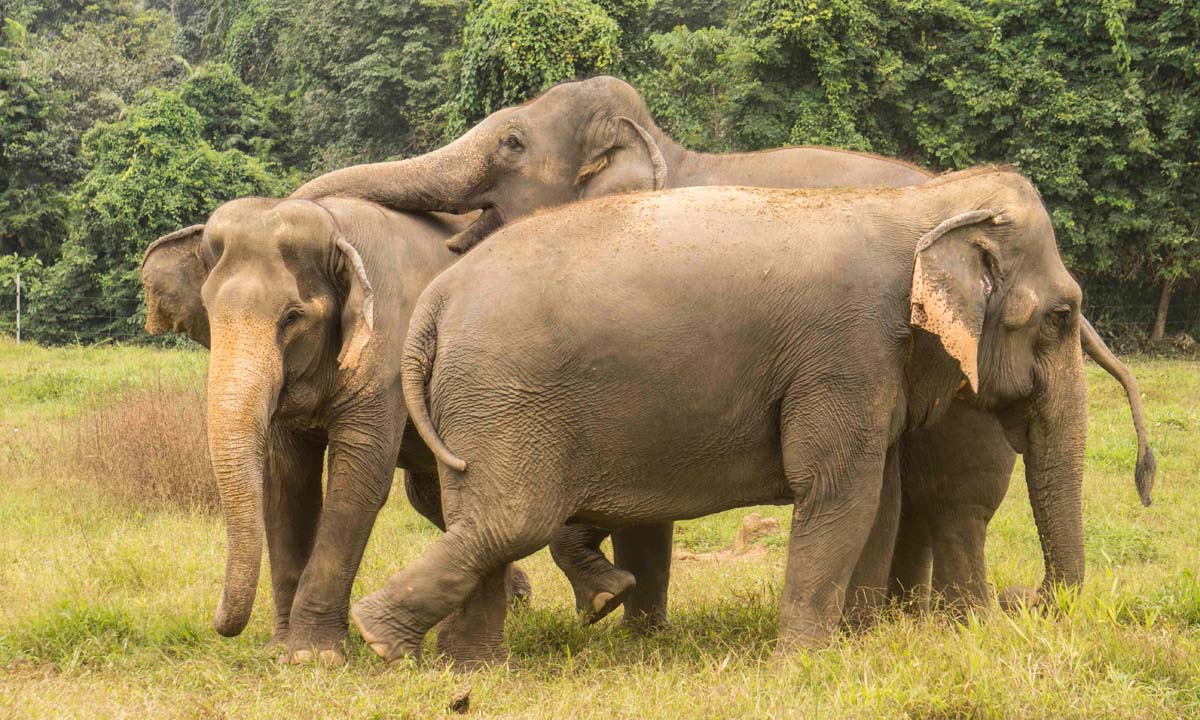
Quite simply, there is little natural environment left for Asian elephants to survive in, the logging industry has left disconnected pockets of rainforest throughout Thailand. So, it’s hard for elephants to survive as they normally would, but also, some of these beasts have been domesticated for so long they’ve forgotten how.
There are now many national parks in Thailand, the result of a grass roots-led environmental movement that started back in the 1980s. Thais visit their own national parks more than any other nationality – the parks are not there purely for the benefit of international tourists. Looking after the natural Environment is a value that fits well with Buddhist philosophy, so after success of the grass roots environmental movement back in the 80s, it became something taught to the younger generation of Thais in schools by Buddhist monks.
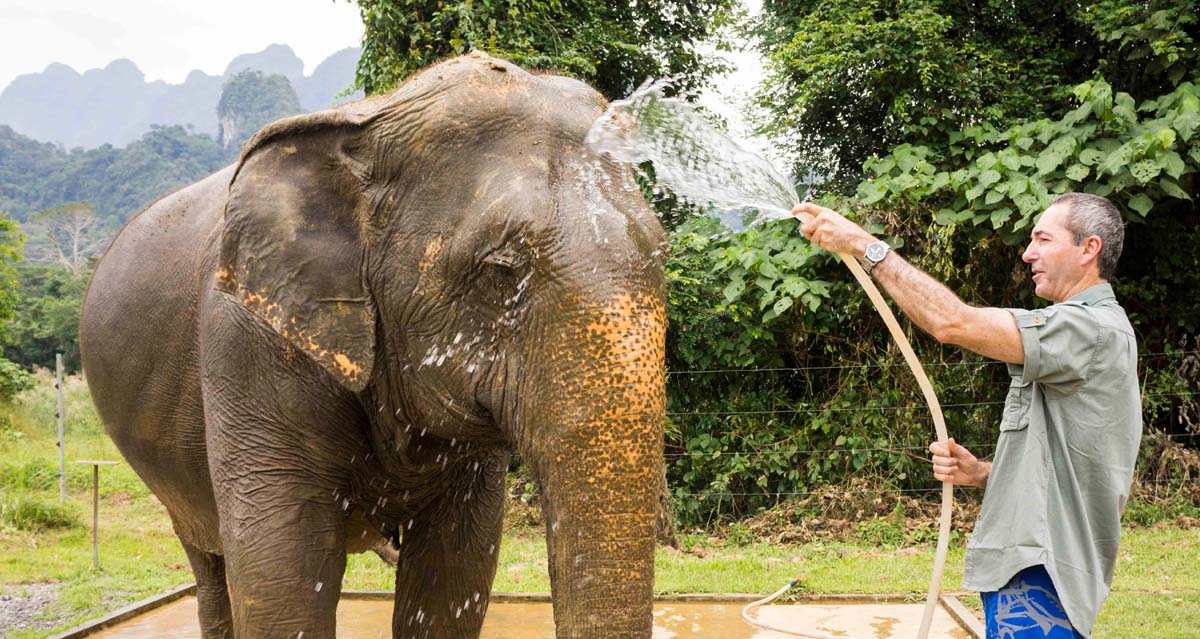
Most elephants in southern Thailand have travelled from North and Central Thailand, bringing with them their Karen Mahouts who, dressed in colourful traditional garb, click, cluck and slap their cheeky charges into line as the visitors learn how to give them a scrub, before preparing a lunch of pineapple, bananas, sugarcane and elephant grass.
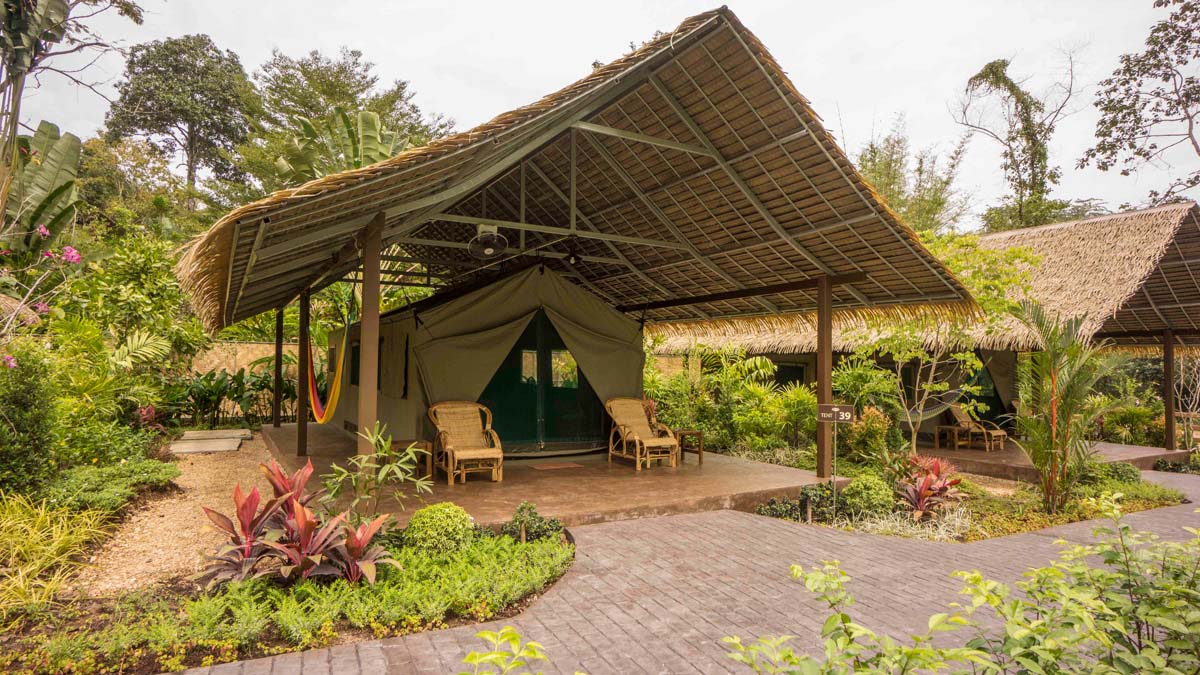
Having exhausted elephant food supplies, a safari bus takes you back to camp to watch a documentary about elephants, followed by cooking demonstration and a dance recital by local school kids that the resort supports financially.
The next day your adventure continues at a second camp – a floating camp on Cheaw Lan Lake. The lake was created by the construction of Ratchaprapa dam, which provides hydroelectric power to the surrounding regions and has opened up this seemingly impenetrable mountainous jungle to visitors.
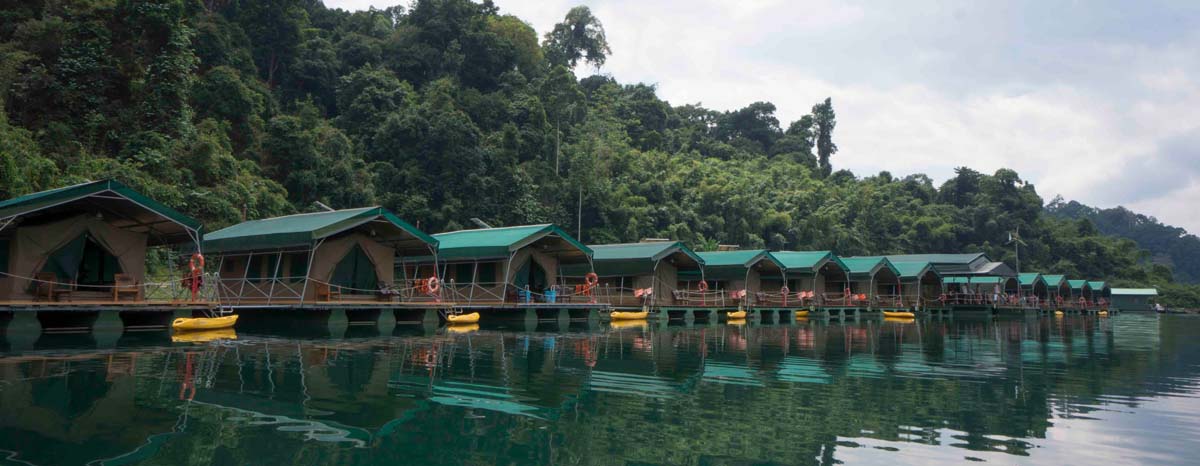 A long tail boat takes you across the lake to your floating tent, taking a few spins around the steep limestone pinnacles that dot the lake, former mountain tops that are now islands. This part of the adventure is more of a true jungle experience, starting with a 3-hour trek to a large cave, on the lookout for gibbons, dusky langurs, and if you’re really lucky, a sun bear.
A long tail boat takes you across the lake to your floating tent, taking a few spins around the steep limestone pinnacles that dot the lake, former mountain tops that are now islands. This part of the adventure is more of a true jungle experience, starting with a 3-hour trek to a large cave, on the lookout for gibbons, dusky langurs, and if you’re really lucky, a sun bear.
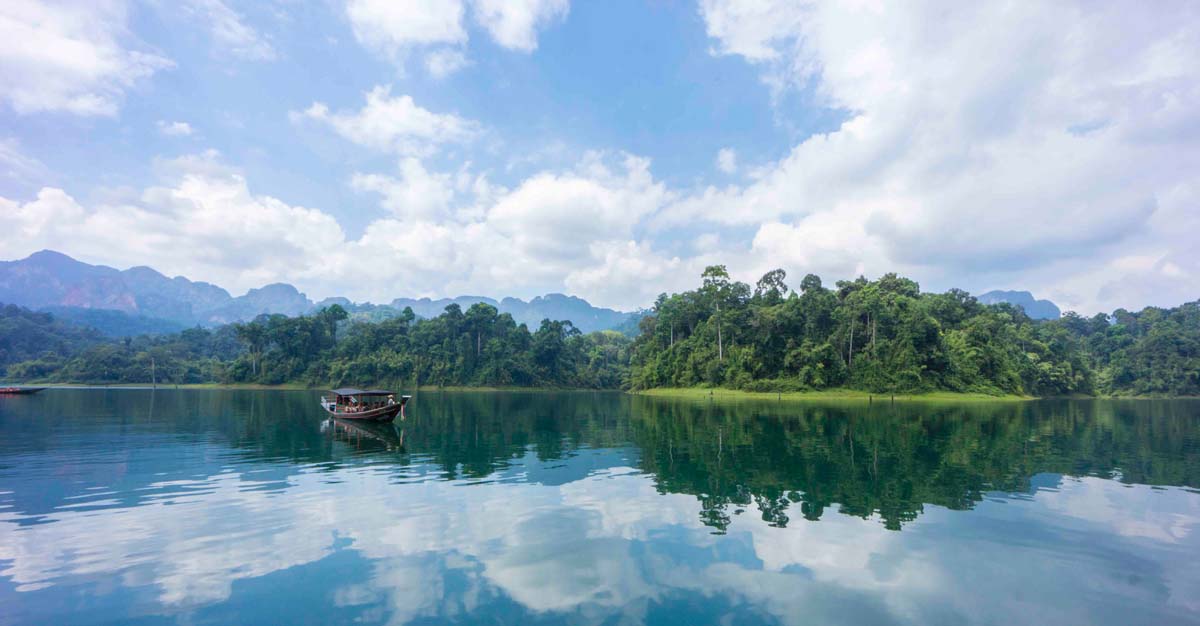
You’ll fall asleep to the sound of noisy monkeys, cicadas and bird song and the next morning, go for a paddle around the islands in search of them before returning to busy Phuket. Click here for more information.

All photos by Pete McGee.
Source link : Elephant Hills: where to have a family-friendly ethical elephant encounter

